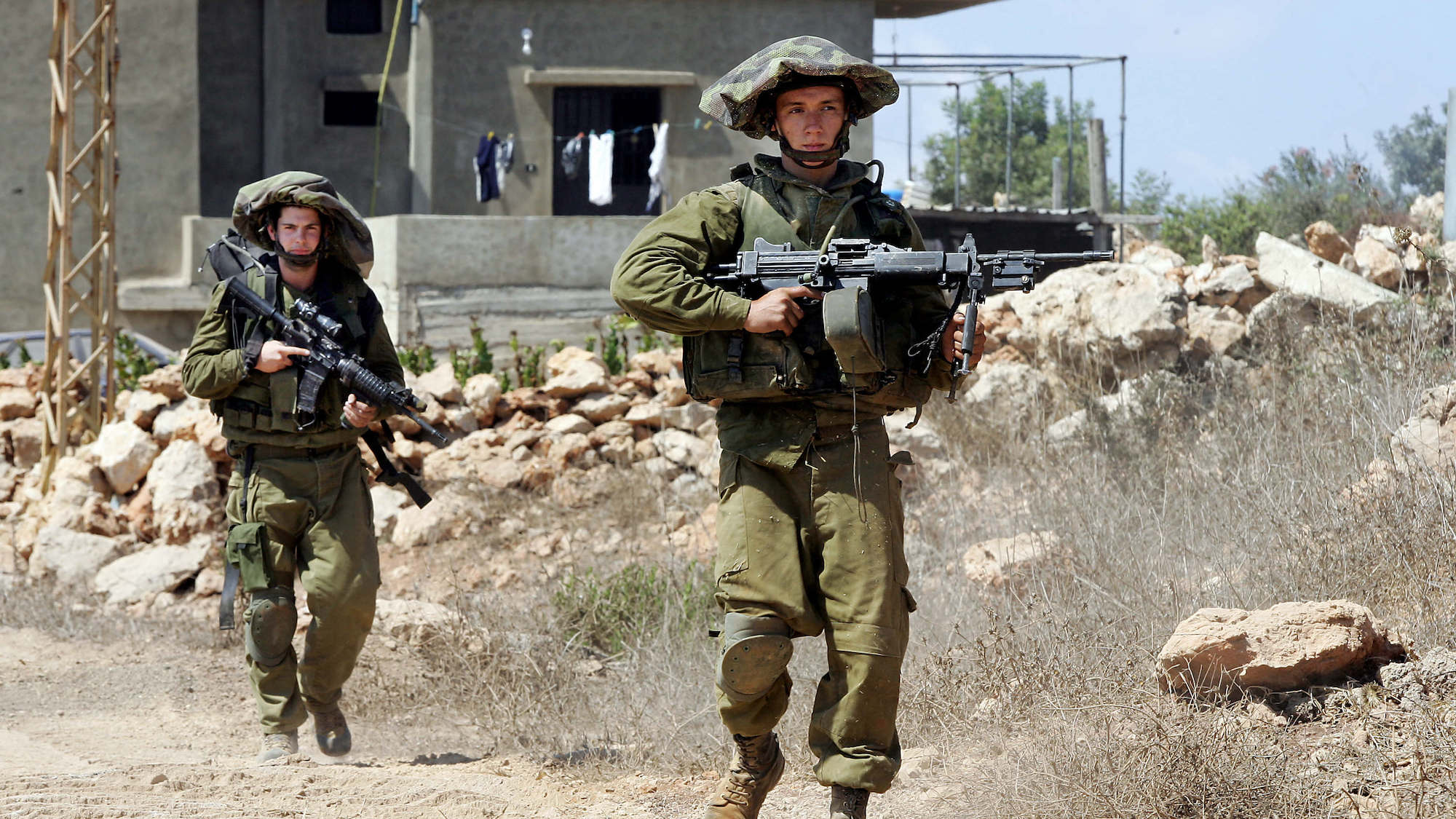How the 2006 Israel-Lebanon war set the stage for 2024
Both sides have been planning for the possibility of another conflict since the devastating month-long war 18 years ago

A free daily email with the biggest news stories of the day – and the best features from TheWeek.com
You are now subscribed
Your newsletter sign-up was successful
The Israeli military earlier this week said it had begun a so-called "limited" and "localised" deployment of ground troops in Lebanon as its conflict with militant group Hezbollah continues to escalate.
The last time Israel launched a ground offensive over the border of its northern neighbour was in a bloody and unsuccessful 33-day campaign in 2006, which the government admitted ended "without its clear military victory".
Israel's killing of Hezbollah leader Hassan Nasrallah in an airstrike last Friday dramatically ratcheted up fighting, and both sides are using lessons from the brutal war over 18 years ago to inform their strategies in the latest conflict.
The Week
Escape your echo chamber. Get the facts behind the news, plus analysis from multiple perspectives.

Sign up for The Week's Free Newsletters
From our morning news briefing to a weekly Good News Newsletter, get the best of The Week delivered directly to your inbox.
From our morning news briefing to a weekly Good News Newsletter, get the best of The Week delivered directly to your inbox.
What happened in the 2006 war?
The last Israeli incursion into Lebanon was a "debacle", said Al Jazeera. Airstrikes decimated Lebanese infrastructure and civilian life, while Israeli ground troops were left "bogged down in fierce fighting". A total of 121 Israeli soldiers were killed and 20 tanks were destroyed in the war after Hezbollah fighters laid "carefully prepared ambushes".
It had begun after two Israeli soldiers were kidnapped and three were killed by Hezbollah in a cross-border raid. The ground invasion began after the "failure of air power" left it as its only remaining option, which has "so far failed again today", said ABC News.
The 2006 war ended only when both sides adopted a United Nations Security Council resolution, which called for the disarmament of Hezbollah and the full withdrawal of the Israel Defense Forces (IDF) from southern Lebanon. However, Hezbollah has "continued to build out its weapons arsenal" and even upgrade it with "precision-guided munitions and drones", said Foreign Policy.
What is Israel doing differently this time?
Israel's failure in the 2006 conflict led to "50 internal inquiries reviewing its armed forces", said The National, and it has since strengthened in power and better equipped its forces with armaments and training.
A free daily email with the biggest news stories of the day – and the best features from TheWeek.com
The Israeli government has long considered Lebanon its "primary foe", said Foreign Policy, and in 2019 created "revised plans" for a "rapid destruction of the group's military capabilities in the event of a future conflict".
That has been demonstrated through its targeted airstrikes on senior Hezbollah figures, including the killing of Nasrallah, which was possible due to "extensive intelligence" on where he would be in "real time".
That approach to intelligence was also evident in Israel's pager attack, which simultaneously exploded the communication devices of Hezbollah members. It's a tactic that has been "decades in the making" and largely due to the "hard-learned lessons" in 2006.
The IDF has also seemingly changed how it will approach ground incursion since 2006, with the current "nature and scale of troops and tanks" on the ground indicating it could be eyeing a "longer invasion" that avoids the bloody stalemate of 2006, said Al Jazeera.
As well as being ill-prepared, Israel's problem back then was "underestimating" Hezbollah's "ability to fight on home turf", and its operations on the ground now still risk it being "bogged down" in another "protracted war".
What about Hezbollah?
Lebanon has remained a priority for the IDF and Mossad since the war ended in 2006. Hezbollah is better armed than ever, and it has been firing rockets into Israel since late 2023 in solidarity with Hamas in Gaza. And while Israel has long planned how it would defeat the group on its home turf, Hezbollah has also not been idle since the last war.
It has spent the "last 18 years" preparing "tunnels and positions in solid rock", said Jeremy Bowen at the BBC, and it now has a "formidable arsenal". Unlike Hamas, it is not isolated from supply lines , and while much of its communications have been hampered, it is "obdurate, well-armed and angry" and will find a way to fight back against Israeli forces.
What happens next?
Israel hopes its successful operations so far are a precursor to defeating Hezbollah, and being able to return Israeli citizens to northern settlements near the border. But this "total victory" promised by Prime Minister Benjamin Netanyahu is a "mirage", said Arieh Kovler in The Spectator, and there needs to be a "realistic plan that allows the residents of northern Israel to live in peace".
A diplomatic solution also seems off the cards currently given the lack of a ceasefire in Gaza, and this is now the region's "most dangerous crisis", said Bowen, and currently "nothing is stopping it spiralling towards something much worse".
Richard Windsor is a freelance writer for The Week Digital. He began his journalism career writing about politics and sport while studying at the University of Southampton. He then worked across various football publications before specialising in cycling for almost nine years, covering major races including the Tour de France and interviewing some of the sport’s top riders. He led Cycling Weekly’s digital platforms as editor for seven of those years, helping to transform the publication into the UK’s largest cycling website. He now works as a freelance writer, editor and consultant.